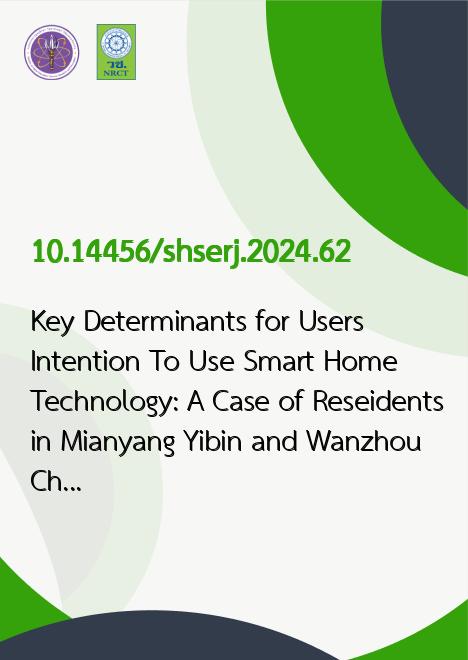
|
Key Determinants for Users Intention To Use Smart Home Technology: A Case of Reseidents in Mianyang Yibin and Wanzhou China |
|---|---|
| รหัสดีโอไอ | |
| Creator | Tianbin Mao |
| Title | Key Determinants for Users Intention To Use Smart Home Technology: A Case of Reseidents in Mianyang Yibin and Wanzhou China |
| Publisher | Assumption University Press |
| Publication Year | 2567 |
| Journal Title | The Scholar: Human Sciences |
| Journal Vol. | 16 |
| Journal No. | 3 |
| Page no. | 89-99 |
| Keyword | Hedonic Motivation, Social Influence, Price Value, Intention to Use, Smart Home Technology |
| URL Website | http://www.assumptionjournal.au.edu/index.php/Scholar/article/view/7632 |
| Website title | The Scholar: Human Sciences |
| ISSN | 2586 - 9388 |
| Abstract | Purpose: The objective of this research is to investigate the various determinants that affect residents' inclination to adopt smart home technology in the cities of Mianyang, Yibin, and Wanzhou, located in China. The conceptual framework encompasses factors such as perceived usefulness, perceived ease of use, personal innovativeness, trust, hedonic motivation, social influence, price value and intention to use. Research design, data, and methodology: In this study, the target population consisted of 500 smart home users residing in Mianyang, Yibin, and Wanzhou, China. To ensure the content validity and reliability of the questionnaire, Item-Objective Congruence (IOC) and a pilot test of Cronbach's Alpha were employed before distribution. Data analysis was conducted using Confirmatory Factor Analysis (CFA) and Structural Equation Modeling (SEM) to assess the model's goodness of fit and validate the causal relationships among variables for hypothesis testing. Results: All hypotheses were found to be supported. The variables of perceived usefulness, perceived ease of use, personal innovativeness, trust, hedonic motivation, social influence, and price value were discovered to significantly influence the intention to use smart home technology. Additionally, it was observed that perceived ease of use exerted a significant impact on perceived usefulness. Conclusions: In particular, it has important theoretical guidance and practical value for improving the user experience of Chinese residents using smart homes. |
